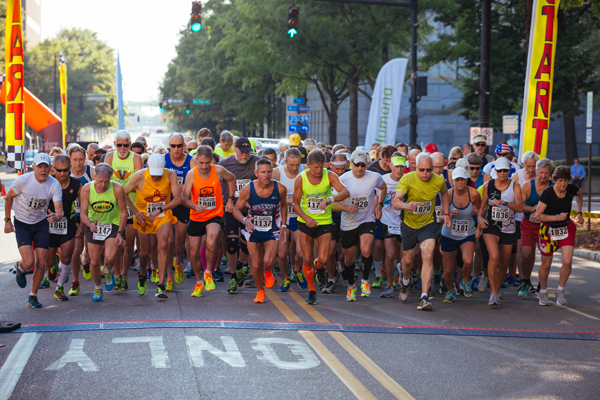- La Feria Community Holds Succesful Business Mixer Event
- Little Nashville to Take Place in Downtown Mercedes
- Lions Basketball Captures District Gold
- La Feria ISD Students Compete in Regional Chess Tournament
- Lions End First Half of 32-4A on a High Note
- La Feria ISD Held Another Successful Parent Conference
- Strong Appearance for Lions at Hidalgo Power Meet
- LFECHS Students Get to Meet Local Actress
- Students Participate in Marine Biology Camp
- Two LFECHS Students Qualify for All-State Band
Competitive Sports Can Improve Quality of Life at Any Age
- Updated: May 17, 2019
(StatePoint) Are you an older adult looking for some inspiration to stay physically active? In June, the 2019 National Senior Games presented by Humana will gather a record number of more than 13,700 athletes aged 50 and over to compete in 20 medal sports.
Many assume competitors are elite or career athletes. While that’s true for some, others find the opportunity in midlife to learn a new sport or return to an athletic passion of youth that lapsed with the demands and distractions of adulthood. Others discover that organized senior sports provide a motivation to exercise regularly with goals reaching beyond the tedium of the treadmill.
The National Senior Games Association (NSGA) is comprised of 54 member games held annually throughout the U.S. and Canada.
Athletes qualify for the national games in even-numbered years within five-year age divisions.
“While people are competing for medals, they are also pursuing their optimum health, which we say is your real personal best,” says Marc T. Riker, CEO of NSGA. “It’s a lifelong journey that can begin for anyone, at any skill level, at any age.”
The health benefits of athletic competition are striking. On average, athletes measured a fitness age 25 years younger than their chronological age in an NSGA study of highly-active seniors, developed by researchers at the Norwegian University of Science and Technology.
Another potential benefit of sports participation? Accident prevention. Falls are the leading cause of fatal injury and the most common cause of nonfatal trauma-related hospital admissions among older adults, according to the U.S. Centers for Disease Control and Prevention. However, results from Senior Athlete Fitness Exam (SAFE) screenings reveal that only 10 percent of senior athletes have a fall in a given year, which is one-third the rate of the general population.
Of course, older adults don’t need to play sports to achieve and maintain a better quality of life. Regular exercise and other recreational activity provide tangible health benefits as well. However, competitive sports, such as the Senior Games, engages participants mentally and socially, and provides the goals and motivation often needed to stay active.
“The Senior Games is about more than competition. It provides fitness, fun and fellowship through sport for older adults nationwide,” says Riker.
Founded in 1987, the National Senior Games is the largest Olympic style multisport event in the world for older adults. Held in different host cities every two years, this year, it’s all happening in Albuquerque, N.M. June 14 through 25.
To find out more about the Senior Games Movement, including state games information, sports offered, news and athlete profiles, visit NSGA.com.
Whether you take a walk around the block, go bowling with a buddy or enter the National Senior Games, it is never too late to start enjoying the benefits of a more active lifestyle.



